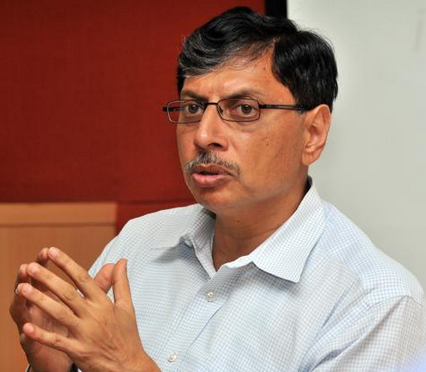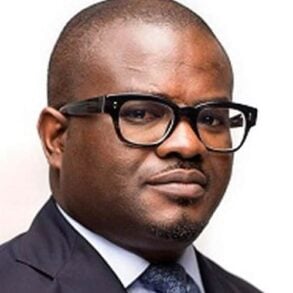We live in a period of unchecked technological advances, and the IT industry is constantly evolving. Amidst perpetual change, it can be difficult to identify monumental shifts that have occurred in the industry. But if you look closely, you’ll find that one man has had a greater impact on IT services than nearly any other.
His name is Phaneesh Murthy, and he’s responsible for pioneering many of the processes and business models that are considered standard in the IT services industry today.
Murthy led multiple tech companies in his native India to global tech dominance, and in the process, helped spur India’s economy into the modern silicon age. In fact, today, Murthy’s home of Bangalore, India is second only to Silicon Valley as a tech hub.
Phaneesh Murthy is also a consultant and board member for numerous global companies, where he continues to engineer disruptions and move the entire IT industry in new directions.
The story of IT is not complete without Phaneesh Murthy. Below, we briefly recap his successful career, including his key accomplishments and his continued influence today.
Phaneesh Murthy’s Background: “Nobody’s died of hard work”
Phaneesh Murthy was born and raised in Bangalore, India to a middle-class family. He earned a BTech at the Indian Institute of Technology, Madras, and then an MBA from the Indian Institute of Management, Ahmedabad.
While he is known for his work in the IT industry, Murthy is not a developer. Marketing, sales, and management became his greatest strengths. But long before that, his greatest strength was simply working harder than anyone else. He didn’t have much growing up, but he considers his strong work ethic to be his greatest inheritance from his parents.
“Nobody’s died of hard work. My mom always used to say that,” Murthy said. “It’s good to work hard. I have been working 80 hours a week for almost all my life.”
When Murthy entered the IT industry just a few years before the birth of the public internet, he had no idea how much his hard work would pay off.
Architect of Global IT Services
When Phaneesh Murthy began his job at the small Indian tech firm Infosys in 1992, he was hardly poised to earn any recognition as an IT professional.
“I’d never written a line of code,” he said.
But with the birth of the internet, Phaneesh Murthy recognized the potential of an IT services global business model before anyone else. But when he proposed it, very few listened.
“I remember starting what I call a global delivery model concept,” Murthy said. “The concept was that we could take a project and split various parts of it and do a large chunk from a lower cost location, thereby reducing the overall cost of the project. Many of the industry analysts, including people [who are today working for] Gartner and Meta, just didn’t believe it at that time.”
Luckily for Murthy (and the industry as a whole), he was Infosys’ only officer outside India. He was representing the brand in California and picking up clients in the US and Europe. No one could tell him what he could or couldn’t do, so he implemented his new business model, called the Global Delivery System (GDS). Within a few years, Infosys’ revenues skyrocketed from about $1.3 million to $750 million. Today, GDS is the standard business model of the IT services industry.
Murthy went on to pioneer numerous other disruptive advances in the IT industry. After Infosys, he founded global business services provider Quintant. Having recognized issues at Infosys, Murthy created a different type of business model for his new company.
“Customers were getting tired of paying for effort, and I wanted to create a completely new paradigm where clients would start paying for results and for outcomes rather than for effort,” Murthy said.
This results-based business model catalyzed innovation at Quintant while giving clients much more control over their ROI. It evolved into the core of today’s SaaS business model.
Soon after, Quintant was acquired by iGATE, where Murthy would serve as President and CEO. During his time there, he developed the ITOPS model by integrating operations with IT. This greatly facilitated communication between clients and outsourcers and improved data collection and processing. As a result, iGATE’s revenues went from nearly zero to $1.2 billion, making it one of the IT services firm in India.
Continuing His Legacy as a Founder and Board Member
When Phaneesh Murthy left iGATE after 10 years, he could have retired. But instead, he chose to continue his work with even greater enthusiasm. Within a few months, he founded Primentor, Inc., an advisory firm that mentors senior executives. At Primentor, Murthy takes a hands-on approach with every client, helping them rethink their business models, break stagnation, and unlock hyper-growth.
“I meet with all of the companies every day,” Murthy said. Primentor serves six to seven clients at a time, which would be a lot for anyone else to take on. But not Murthy. Even at 60 years old, he maintains the work ethic and habits of his youth.
“I never have to take coffee breaks, my energy is quite high, and I work out regularly, so that keeps my energy going,” Murthy said.
Over the past decade, Primentor has sparked major growth and cut costs for numerous global brands, including a major UK bank, a 130+ year-old American Insurance giant, and a leading IT services firm in India.
Aside from his day-to-day at Primentor, Murthy is an active board member at Cigniti Technologies and Opus Consulting. Both in the IT space, these brands benefit from Murthy’s experience while affording him an inside look at emerging industry trends.
For instance, Opus Consulting deals in the fintech sector, which is disruptive by nature. Murthy is helping them re-engineer payment systems to offer businesses new, more efficient ways to transact.
Cigniti Technologies helps businesses expand with integrated IT solutions. IT integration with operational tasks was one of Murthy’s contributions to the industry, so it’s no wonder he feels at home at Cigniti. Cigniti is a public company, so Murthy is integral to helping them navigate both strategy and compliance. Since he became a board member, the company’s revenues have climbed by over 150%.
Phaneesh Murthy’s Philanthropic Work: A Leader in Tiger Conservation
Phaneesh Murthy has been a lifelong lover of wildlife, and he’s dedicated considerable philanthropic efforts towards the protection of endangered species. In particular, he has spent over two decades preserving and growing the populations of Indian tigers.
One of the planet’s most at-risk animals, tigers in India were nearly hunted to extinction during the 20th century. By 2006, there were only about 1,400 tigers left.
“Tigers were going through an existential crisis,” Murthy said. “And for those of us who have seen these magnificent animals in the wild, we wanted to make sure that our children would be able to see them too.”
Murthy spent time identifying the key risk factors of tigers and then went to work mitigating them.
“One [factor] is to make sure that the villages don’t start encroaching upon the jungle for their livelihood,” Murthy explained. The other major risk to tigers, according to Murthy, is poaching.
In order to protect tigers and advance those living in close proximity to them, Murthy set up The Kabini Foundation, a non-profit dedicated to providing vocational training to villagers. With their new skills, they could earn a living in ways that didn’t encroach on tiger habitats.
He also donates money and resources to tiger reserves, which are often vast and difficult to monitor, in order to help rangers and authorities track poachers and care for tigers.
“I donate equipment, jeeps, and thermal drones so that [conservationists] can keep track of anti-poaching efforts,” Murthy said. “I also contribute a lot to the tiger census.”
Recently, Phaneesh Murthy donated a state-of-the-art thermal drone to the Nagarahole Tiger Reserve. Nagarahole is home to India’s 3rd largest tiger population. Now, for the first time, conservationists will be able to detect heat signatures during the day and night, which will help them detect poachers, locate tigers, and prevent forest fires.
Phaneesh Murthy’s conservation efforts have paid off in a big way. Since he began his philanthropic work, Indian tiger populations have more than doubled. Tiger populations where Murthy has focused his efforts exceed the national average by ten times.
What the Future Holds for Phaneesh Murthy
After a lifetime of successful innovations, Phaneesh Murthy is not interested in slowing down. As founder and CEO of Primentor, Inc., Murthy meets with clients daily and continues to have an influence on the way the world does business.
As for the future, he is currently exploring the applications of generative AI in business and IT.
“I’ve been doing a fair amount of work and research on [generative AI],” he said. “Can I use AI to automate everything that you and I interact with? Which things can I use to automate? My claims processing? My mortgage applications?”
AI is the next major disruption in the IT industry, and it seems Phaneesh Murthy will be central to this paradigm shift as well.









